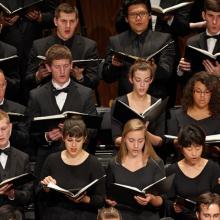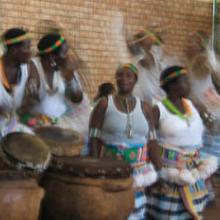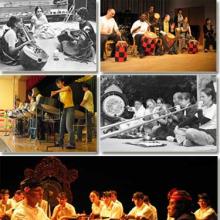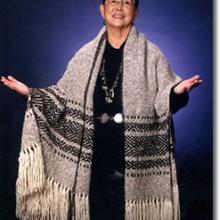Archives and Collections

The University of Washington Baltic Choral Music Collection is the first collection of its kind in the United States and is provided in hopes of creating greater access for American choral musicians to the wealth of these musical traditions. The collection is housed in the University of Washington Music Library. Browse the Baltic Choral Music database here.

The UW Choral Library is an extensive collection of nearly 1,500 individual pieces, major works, and published collections. The library catalog may be accessed here or by visiting the Choral Library. The catalog is a work in progress.

In 1973 John Blacking’s How Musical Is Man? was published by University of Washington Press. Blacking, an English anthropologist and ethnomusicologist, had been invited to the University of Washington as a Jessie and John Danz Lecturer in 1971, and his series of talks became the basis for this published work. How Musical Is Man? explores the role of music in society and culture and, conversely, the role of culture and society in music. Blacking draws on his field research with the Venda people of the Northern Transvaal, South Africa as well as his own musical background to demonstrate the relationships between patterns of sound and patterns of human organization inherent to all societies.

The University of Washington Ethnomusicology program houses over 400 musical instruments from around the world. Each year since the founding of the Ethnomusicology program in 1962, one or more international artists have been invited to the campus to share their musical traditions through teaching and performance. The musical instrument collection has grown over the years as the result of these residencies, and its make-up reflects the instrumental traditions of the artists who have been our guests. Additional donations have expanded the collection to its present size.

Voices of the First People is a project created to honor the life and work of Vi Hilbert by making accessible audio and video recordings that are part of the Vi Hilbert Collection in the University of Washington Ethnomusicology Archives. It is a project of Northwest Heritage Resources in partnership with the University of Washington Ethnomusicology Archives and Lushootseed Research. Jill La Pointe, granddaughter of Vi Hilbert and president of Lushootseed Research, has acted as project advisor.